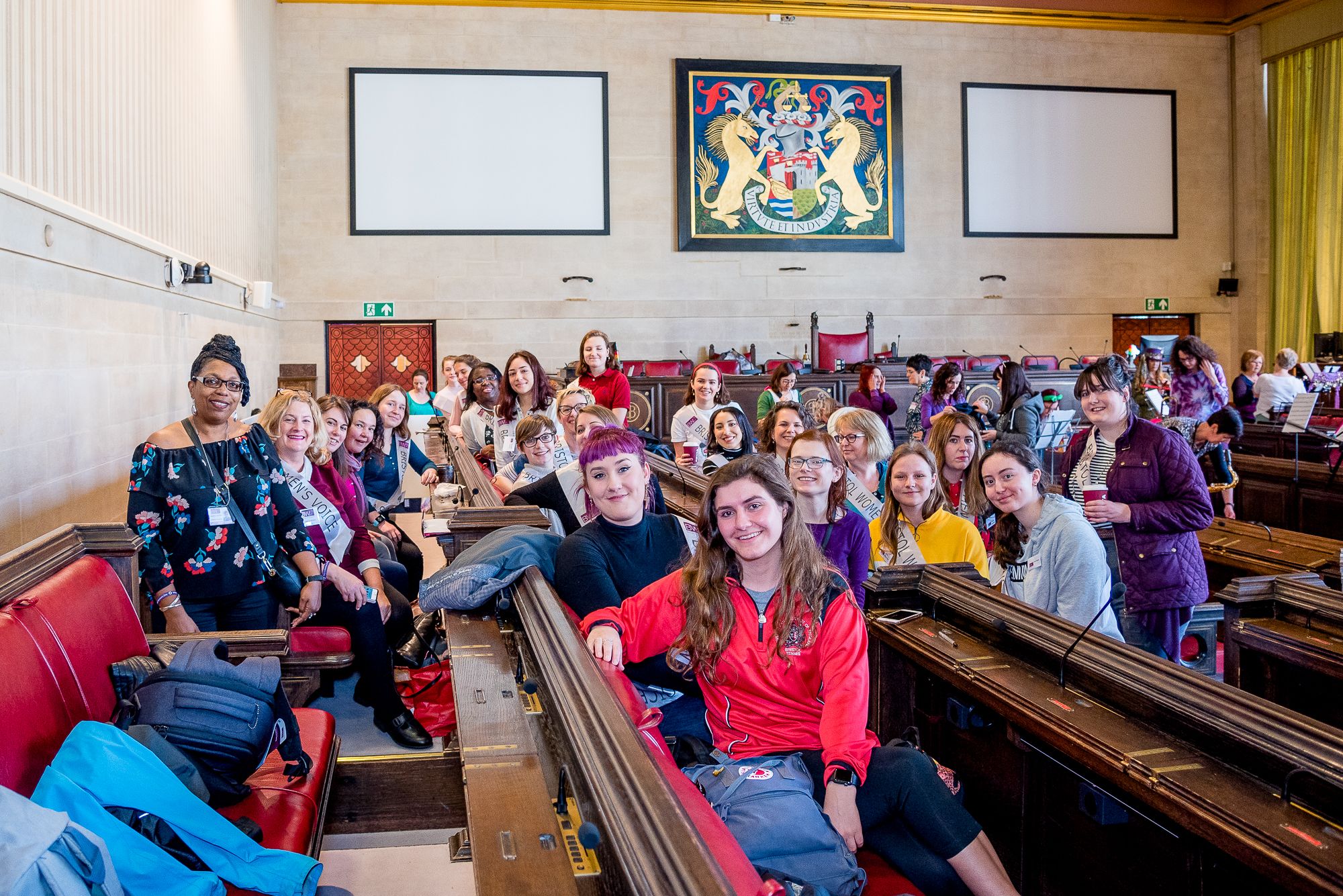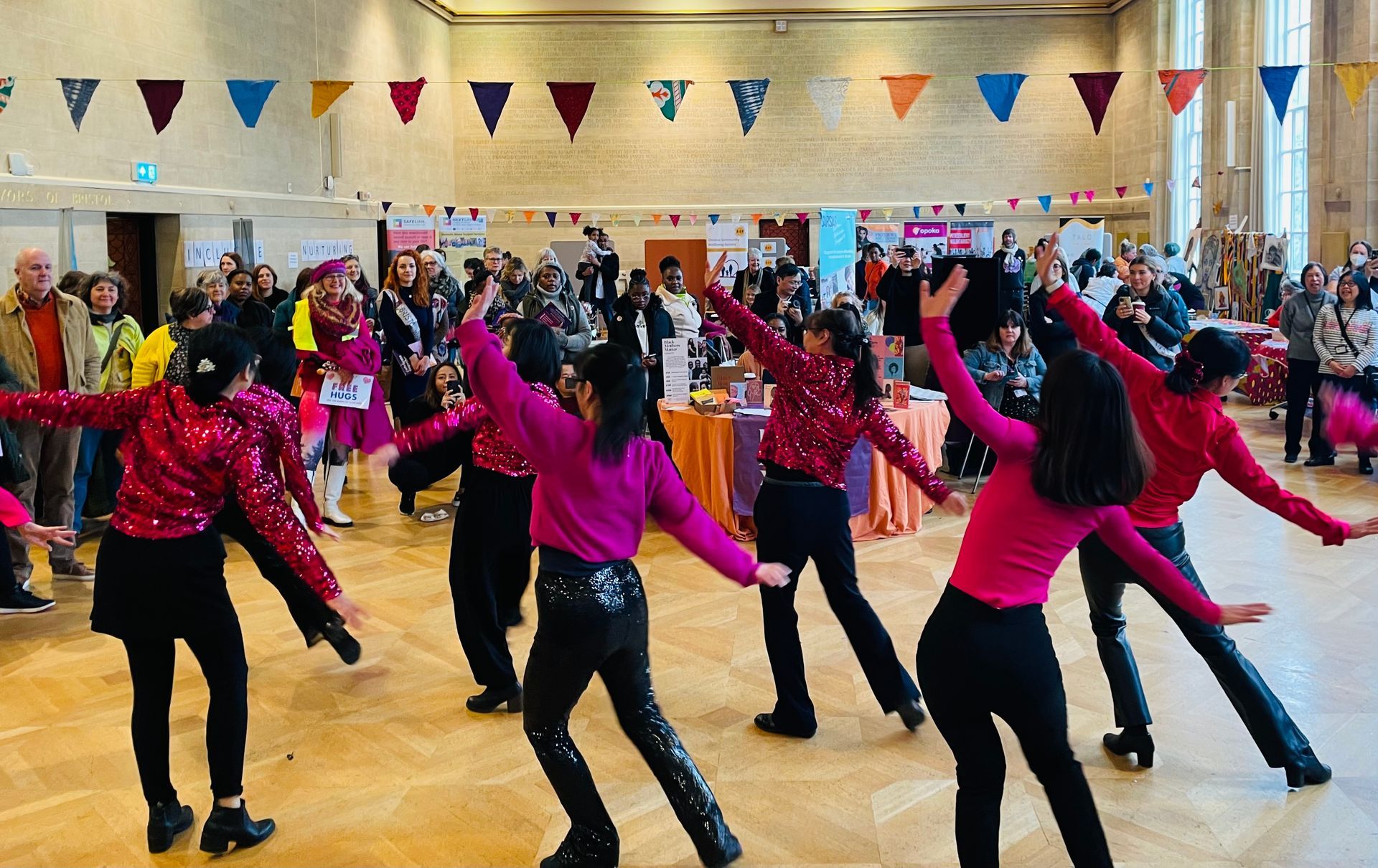By Annie McNamee, First Year Film and English
Bristol Women’s Voice is an organisation with a mission that is both simple and ambitious: make Bristol a better place for every woman living, working, and studying here. Director Katy Taylor sat down with Epigram to discuss the work Bristol Women’s Voice is doing for the community.
Katy says the weeks leading up to 8th March’s International Women’s Day are ‘much busier than Christmas’. Her infectious passion strikes me from the beginning of our conversation. Describing the events they had lined up for their annual International Women’s Day event, including everything from talks with industry experts to flamenco dancing, she explained that the day encompasses everything she loves about her work: it’s all about bringing women together.
Building community is at the heart of much of their work. In light of the current cost of living crisis, they have been helping out with the Welcoming Spaces initiative, which aims to create warm, safe places that people can go for free. These are spaces where people can keep warm, charge phones, socialise with others and access support related to the cost of living.
‘The cost of living crisis is a gendered issue, we know this’, Katy explains. She stresses that women are more likely to be unpaid carers for children or family members and they’re more likely to be employed in part time work, leaving them more vulnerable to soaring prices.
The staff at BWV are working alongside the initiative to advise them on making Bristol’s 87 Welcoming Spaces more accessible and safe for women, providing guidance like: ‘Have you thought about putting up breastfeeding friendly sites, do you know how to tackle sexual harassment? Is it near the toilets for elderly women? In a leisure centre, have you made sure it’s not happening at the same time as the young men’s football?’
'We want women to be equal to men, but which men? In order for women to be equal to men, men have to be equal to each other.'
As well as offering training for those running the welcoming spaces on issues like sexual harassment and everyday sexism, the organisation have also arranged women-only spaces in Redcliffe and Fishponds, which offer tea and coffee, books, a computer for public access, workshops and activities, and warmth for those most in need of it. ‘We’re just up the road from Oldbury Court, one of the poorest places in the country,’ Katy says. ‘But it’s not one of those places that people think about.’
Katy explains that something as simple as giving women in underprivileged areas a space where they can, ‘just come and be,’ free of expectation or judgement, can offer an escape from what is otherwise a terribly isolating time.

As we discuss the diverse women the group supports, it becomes clear that an intersectional approach is fundamental to Katy, both in both her personal ethics and in the changes she wants to see on a community scale.
‘Equality has to be for everyone,’ she insists. ‘We want women to be equal to men, but which men? Black men? Working class men? In order for women to be equal to men, men have to be equal to each other.’
For that reason, the projects BWV decides to take on are often guided by the perspectives and experiences of their members, and what real women in Bristol are struggling with.
'A society designed around its most vulnerable is far more sustainable.'
Diversity in experience is essential to creating a society that works for everyone, Katy tells Epigram, ‘If you were building a house, you wouldn’t just take all of your best hammers. You would want a toolbox with a wide variety of tools.’
After hearing from disabled women that Bristol was often inaccessible to them, the organisation began the Disabled Women Take Action project, aiming to make disabled women’s voices heard by Bristol’s authorities. BWV were part of a campaign to re-open public toilets following lockdown, as women use toilets twice as much as men, and disabled women even more.
Katy explains that there are certain things able-bodied people simply never think of, such as width of pavements; if a pavement isn’t wide enough for a wheelchair or pram, the street becomes prohibited to entire groups of people. Conversely, a wider street does not become difficult for able bodied people to navigate.
‘This is why it’s essential to listen to different types of people. A society designed around its most vulnerable is far more sustainable.’ She adds that, whilst accessibility is important to all disabled people, it is once again a gendered issue, with a disproportionate number of carers and stay at home parents being women.
‘Ask any woman, they’ve all got experience of sexual harassment.’
Women’s safety is another issue of deep importance to Katy, who has a long history working to combat gender-based violence. She voices an all too common sentiment: ‘Ask any woman, they’ve all got experience of sexual harassment.’ In the organisation members' survey, safety was voted the second most important issue to women today, second only to economic issues.
BWV have also been working with First Bus to alert drivers to signs of sexual harassment, in light of their snap survey, which revealed that 59 per cent of women feel unsafe on buses, with a concerning 38 per cent reporting having been inappropriately touched. Katy noted again that trans women, hijabi women, and other marginalised groups are at higher risk.

Katy’s exasperation at the criticism faced by women who do not report their experiences of sexual violence—whilst also often facing disbelief when they do—is palpable. ‘They ask, “where’s your evidence” and it’s like, ask any woman you know! Look at the entire Me Too movement, what more evidence do you need? It’s so frustrating!’
Nighttime safety is, of course, highly relevant to young women and students. Katy is also a member of the Women’s Independent Advisory Group, which holds the Avon and Somerset Police to account, ensuring their approaches to gender-based violence are effective. This organisation likewise takes an intersectional approach to ensure that women of all races, ages, and abilities are receiving support.
The group is also working with the council to ensure that their sexual violence training provisions for clubs and pubs do not fall short. ‘There’s a long way to go,’ Katy acknowledges. ‘But there is progress happening.’
She takes particular pride in the small but important changes she had been a part of in her three year tenure as Director of Bristol Women’s Voice. ‘We’ve gone from two staff members to six,’ she says. ‘We’ve been able to amplify so many women’s voices. It’s so rewarding to be able to live your values every single day.’
Girls just wanna have fun... but can they afford it?
Bristol night-time safety: what has changed?
She is clearly excited to see what the organisation will achieve next, and urges anyone who agrees with their ethos and mission to reach out and get involved.
‘Volunteer! We love volunteers,’ she enthuses. She tells Epigram that the group is always looking for volunteers to help facilitate events at their spaces for women, or simply to provide company. She is especially eager to hear more young women’s voices, and encourages anyone interested to join the group’s mailing list, which you can access for free on their website. ‘Come and be a part of the revolution!’
Featured Image: Bristol Women's Voice
More information on volunteering for Bristol Women’s Voice can be accessed via email at info@bristolwomensvoice.org.uk









